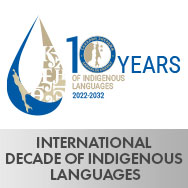- About the company
- Safety and Environment
- Social Performance
- Media
- Tenders
- Jobs and career
- Vacancies
- Students: Internship
- Graduate development programme
- Traineeship Programme
- Energy cup case championship
- Contact us
- Home page
- Safety
- Environmental Protection
- Biodiversity Preservation
Biodiversity Preservation
The Environmental Monitoring Programmes and the Biodiversity Action Plan developed by Sakhalin Energy in 2008 and updated in 2022, which rely on a scientific approach and on industry and international best practices, are in place to ensure Sakhalin Energy's compliance with its commitments to minimise the impact on rare and endangered species and vulnerable biotopes, as well as to implement measures aimed at their conservation.
The surveys monitor the populations of protected plant and animal species and their habitats in order to assess impacts during the operation phase of the project and to work out mitigation measures where necessary.
Protected plant and animal species are monitored in accordance with current Russian environmental laws. Rather than being withdrawn from their natural habitats, specimens are counted and inspected solely through visual observation.
In the areas where the Company's facilities operate, biodiversity conservation measures include research and protection of the following protected species and environmentally sensitive habitats:
• grey whales,
• Sakhalin taimen,
• Steller’s sea eagles,
• protected bird species,
• protected plant species (as per the Vegetation Monitoring Programme),
• wetlands,
• the Prigorodnoye Port water area and Aniva Bay.Findings over years of observations conducted within the footprint of the Sakhalin-2 infrastructure facilities:
Description
Total count
Number of protected species identified in the area of operations*
2016
2017
2018
2019
2020
2021
2022
Marine mammals
7
4
4
5
3
6
4
7
Birds
60
21
23
18
19
12
28
22
Plants
29/27**
29
29
29
27**
27**
27**
27**
Invertebrates
2
2
2
0
* The number of species varies due to differences across areas of operations (either the whole area or individual sites), the frequency of observations (some observations may not necessarily be annual), and varying work scopes. Detailed information about the condition of species, populations, and habitats is provided in analytical and sustainable development reports.
** Two species, Hokkaido wolfberry (Daphne jezoensis) and Trillium tschonoskii, were removed from the Sakhalin Oblast Red Data Book in 2019.
The Company has led its Grey Whale Monitoring Programme since 1997
- Safety and Environment



